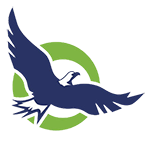Read the detailed description of Quest's Program Details!
Setting Children Up For Success in the New School Year
UPCOMING PROGRAMMING
School Year Programming
We are running an eight-week evening therapeutic groups are designed to provide therapy by specifically targeting individualized goals for our campers. Group will be 75 minutes through telesession and include time for campers to have conversations, interact in positive prosocial ways through game play, and build skills through structured lessons. Group and home goals will be part of the group, with bonuses being awarded through Target gift cards.
Spring Group Starts March 30!
Summer Programming
Quest’s intensive summer program offers 7 weeks of programming (6 weeks of day camp and 1 week of residential). The summer program includes individualized behavior plans, group therapy, occupational therapy, a social thinking curriculum, mindfulness activities, yoga, soccer, games in the park, and field trips (beach, Boomers, Rockin’ Jump, Discovery Science Center, bowling, etc.) to create a fun and engaging, therapeutic camp experience for children.
Weekly parent meetings are also included. The summer program has been found across multiple studies to significantly reduce hyperactivity, impulsivity, aggression, and inattention, while improving peer relations, family relations, athletic competency, behavioral control and self-esteem. Quest has also been found to improve social awareness, social cognition, social communication, and social problems.
Summer Camp Dates are:
June 22, 2020 through August 6, 2020

